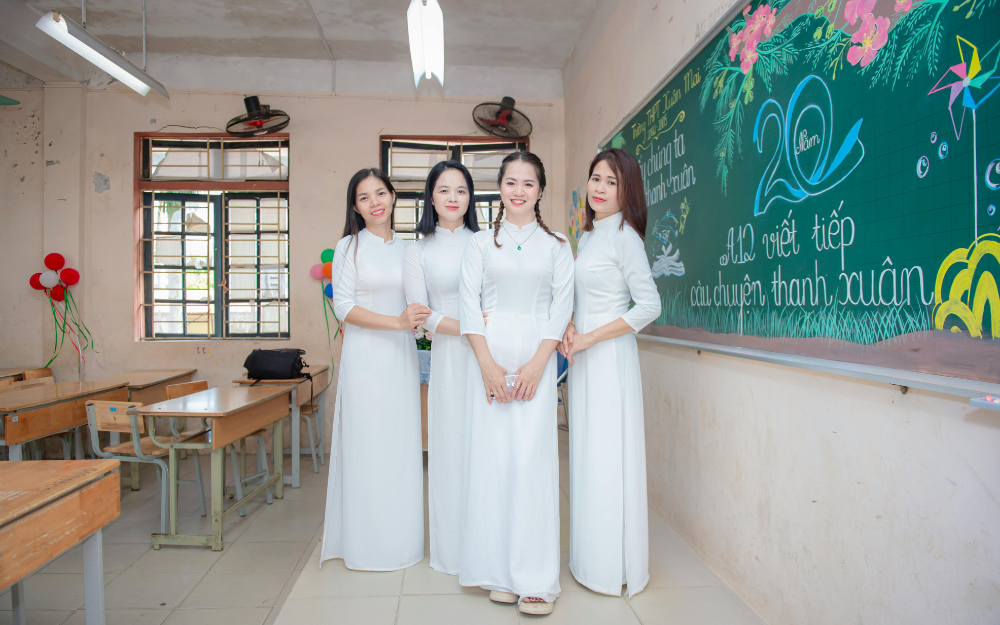
For generations, the Vietnamese have upheld the moral tradition of “Tôn sư trọng đạo” — honoring teachers and respecting learning.
Teaching has always been regarded as one of the most noble professions, for teachers not only impart knowledge but also nurture character, ignite dreams, and guide generations toward a brighter future.
Throughout history, November 20 has been designated as Vietnamese Teachers’ Day, a special occasion to pay tribute to those who dedicate their lives to education.
But why was November 20 — and not another date — chosen for this purpose?
Let’s explore the origins and profound meaning behind this day of gratitude.
Vietnamese Teachers’ Day originated from the “International Charter of Teachers’ Day”, first celebrated in 1958.
The event traces back to 1949, when the Federation of Education Unions (FISE) was founded in Paris, France. The organization’s mission was to advocate for teachers’ rights and promote progressive, humanitarian education worldwide.
In 1958, the Vietnam Education Union officially joined FISE and decided to adopt November 20 — the day the International Charter of Teachers was proclaimed — as an occasion to honor the teaching profession and express solidarity with the global education movement.
Since then, November 20 became a day of appreciation within Vietnam’s education sector.
By 1982, the Council of Ministers (now the Government of Vietnam) issued an official decree recognizing November 20 as Vietnamese Teachers’ Day, marking a significant milestone in the nation’s educational history.

The choice of November 20 was not accidental; it carries deep historical and humanistic significance.
Firstly, November 20 is the day when the International Charter of Teachers was announced — a symbolic declaration affirming the crucial role of teachers, the freedom of education, and the call for nations to protect educators’ rights.
In the spirit of global solidarity and respect for education, Vietnam adopted this date to express gratitude and reverence for the teaching profession.
Secondly, the date holds symbolic meaning within the academic calendar: it falls near the end of the first semester, when students have already bonded with their teachers — an ideal time to reflect on learning and express appreciation.
Since then, November 20 has become more than a professional holiday; it is a celebration of the teacher–student bond, a cultural tradition that has become a proud part of Vietnam’s national identity.
Vietnamese Teachers’ Day carries layers of moral and cultural meaning, reflecting the nation’s deep respect for education and its educators.
A day of gratitude: Students, parents, and communities express appreciation to those who have guided and inspired them.
A day to honor the profession: Teaching is known as “the profession that creates all other professions.” Teachers not only share knowledge but also teach values, ethics, and life lessons.
A reminder of educational values: November 20 reinforces the spirit of lifelong learning and respect for knowledge — both essential to the country’s sustainable development.
More than a commemorative date, Vietnamese Teachers’ Day has become a cultural symbol of gratitude and respect.
Across Vietnam, Teachers’ Day is celebrated joyfully and meaningfully through a variety of activities:
Ceremonies and assemblies honoring outstanding teachers and recalling the profession’s noble traditions.
“Good Teaching – Good Learning” movements that encourage excellence in education.
Art performances, handmade cards, flower-arranging contests, and school newsletters, allowing students to express their affection.
Flowers and small gifts — simple yet heartfelt tokens of gratitude.
Beyond schools, many businesses and organizations also participate by organizing charity programs and initiatives that support teachers, especially those working in remote or disadvantaged areas.
In today’s digital and globalized world, the role of teachers has become more essential than ever.
They are not only knowledge transmitters but also mentors who shape thinking, inspire creativity, and cultivate moral values.
Modern Vietnamese Teachers’ Day is therefore more than a tribute — it is a reminder of the core values of education: knowledge, compassion, and lifelong learning.
Honoring teachers is also a way to honor wisdom, humanity, and the future of the nation.